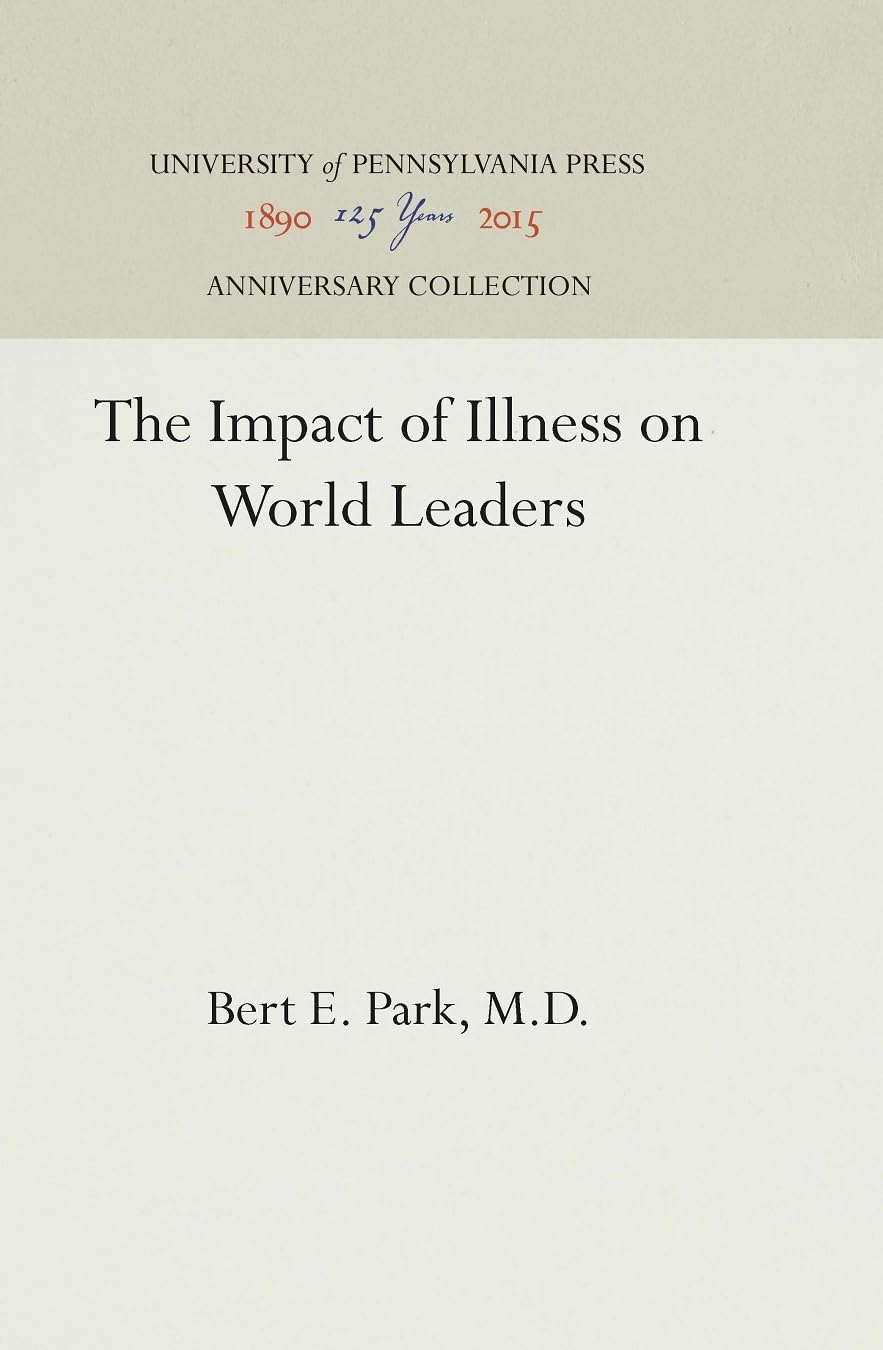University of Pennsylvania Press Anniversary Collection
Impact of Illness on World Leaders (Reprint 2016)
Regular price
$8.95 USD
Regular price
Sale price
$8.95 USD
Unit price
per
Shipping calculated at checkout.
Couldn't load pickup availability
Title: Impact of Illness on World Leaders (Reprint 2016)
Author: M D
E: 1700953
ISBN: 0812280059
Publisher: University of Pennsylvania Press Anniversary Collection
Published: 1986
Binding: Hardcover
Language: English
Edition: Reprint 2016 ed.
Number of Pages: 396
Section: History | Modern | 20th Century - General
Condition Note: Moderate edge wear. Binding good. May have marking in text. We sometimes source from libraries. We ship in recyclable American-made mailers. 100% money-back guarantee on all orders.
Publisher Description:
In The Impact of Illness on World Leaders, Bert E. Park explores the relationship between leadership and neurologic illness. Basing his study on a rigorous examination of primary and secondary source material from medicine, history, and political science, Park diagnoses illnesses which affected the thinking and actions of Anthony Eden and Adolf Hitler, among others. He discusses the historical situations in which these political leaders functioned and the effects their illnesses might have had on the decisions they made.
Park argues that the impact of aging and disease on leadership abilities is an important, potentially devastating problem which has been ignored by the people in a position to deal with it. Physicians who attend men in power, supported by government officials and politicians, often disguise their patients' infirmities and keep them in office long after they are able to function effectively. In those few instances when the problem has been addressed, it has often been done by journalists or other persons not qualified to make a medical judgment about a leader's health, and they have relayed erroneous information (e.g., the myth of Hitler's syphilis). Part of the goal of The Impact of Illness on World Leaders is to correct such popular misconceptions. Park concludes his study of leadership and illness with suggestions for monitoring the health of leaders and deposing them if their health compromises their ability to lead.
